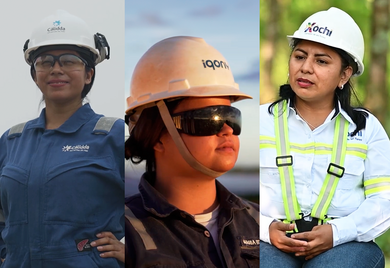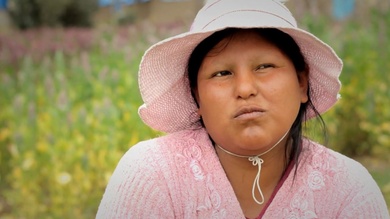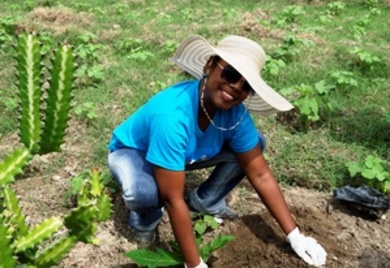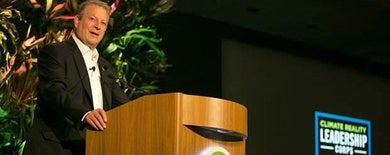Blogs Navigation
Sustainable BusinessRecent posts

Financial Health: Driving Growth in Latin America and the Caribbean
According to the latest Global Findex database, the proportion of adults in Latin America and the Caribbean (LAC) with account ownership rose from 39% in 2011 to over 75% in 2025. This increase was driven by the rise of digital-first financial service providers, expanded government transfers, and innovations that enhance the value proposition, such as the growth of e-commerce and instant payment systems in countries like Brazil, Peru, and Costa Rica.

IDB Invest and the New Push for the Private Sector in Paraguay
Imagine investing in a portfolio of projects in a country with sustained economic growth, low inflation, abundant clean energy, and preferential access to a regional market of 270 million consumers. That country is Paraguay, where IDB Invest has committed to mobilizing up to $1 billion to support strategic private-sector projects that drive sustainable development.

Energy and Transport Infrastructure: Projects Driving Jobs and Transforming Communities
IDB Invest works to boost job creation through the private sector and ensure these opportunities reach areas with the potential to develop new productive sectors and generate formal employment. Financing energy and transport infrastructure projects in Latin America and the Caribbean has been crucial for creating quality jobs and increasing women's workforce participation.

Empowering Rural Women in Agriculture
* By Nancy Lee, General Manager, Multilateral Investment Fund Empowering rural women as farmers, entrepreneurs, and leaders throughout the agricultural value chain is a topic with exceptional importance for agricultural productivity, fighting poverty and food security. Earlier this month, we at the Multilateral Investment Fund (MIF) of the Inter-American Development Bank (IDB) Group hosted a workshop in Washington to discuss how that issue plays out in Latin American and the Caribbean. The purpose was to take a deep dive into the lessons learned from MIF projects that seek to equip and raise the incomes of these rural women.

PEDAL YOUR BIKE. 3 Rides for Sustainability. #COP20
Leaders from government, civil society and the private sector are gathered in Peru this week for the final days of the 20th session of the Conference of Parties (COP) to define the way forward on climate change. Bringing climate change to the world stage communicates the urgency of the issue. Many companies are already engaged, and some have even based their business models on green principles. Bicycles are one tool. Check out three rides for sustainability:

A Business Approach to Smallholder Agriculture
* By Andrea Sabelli There are an estimated 500 million smallholder farmers across the globe that produce food for over 2 billion people. These farmers work on plots of land that are under 2 hectares. The vast majority are poor and undernourished. Yet, the future role of smallholders in the food supply chain and as land stewards will be essential. By 2050, the global population is expected to grow by 2 billion. To meet food demand growth, FAO estimates that 90% of the increase in food demand will need to come from higher yields on existing farms, of which smallholders play a crucial role. Thanks to an example in Haiti, a business approach to smallholder agriculture may be what it takes for us to efficiently address demand.

Women’s Entrepreneurship Day: Smart companies, pay attention
On November 19, 2014, the United Nations launched Women’s Entrepreneurship Day. This day reminds me of a newspaper article I read eight years ago that changed my life. It stated that, although more Jamaican women (70 percent) than men were graduating from higher education institutions, they had a significantly higher unemployment rate -15.6percent and 5.7 percent respectively-. As a Jamaican woman then working her way through university, it marked my professional path forever.

The top 10 developing nations investing in clean energy
By: Agustín Cáceres The history of investing in clean energy in developed countries like Denmark, Spain or Germany is well known: big investments, subsidies, and an energy matrix that is much greener than that of other developed nations likes the US or Japan. However, developing nations represent a large and rapidly growing share of the world’s clean energy investment, according to Climatescope 2014, a country-by-country assessment, interactive report and index that offers the clearest picture yet of clean energy in 55 emerging markets in Africa, Asia, and Latin America and the Caribbean.

Getting Brazil Climate-Ready One Sector at a Time #CRinBrazil
At the very time the city of São Paulo is struggling with the worst man-made water crisis in its history, with millions of people and local businesses suffering from water scarcity, climate leaders gathered in Rio de Janeiro just a few hundred miles away, to come up with solutions to the global climate crisis. I was one of 600 participants who came from 55 countries to attend Former U.S. Vice President Al Gore’s Climate Reality Project’s 26th leadership training, #CRinBrazil, the first one ever held in Latin America and the Caribbean.


